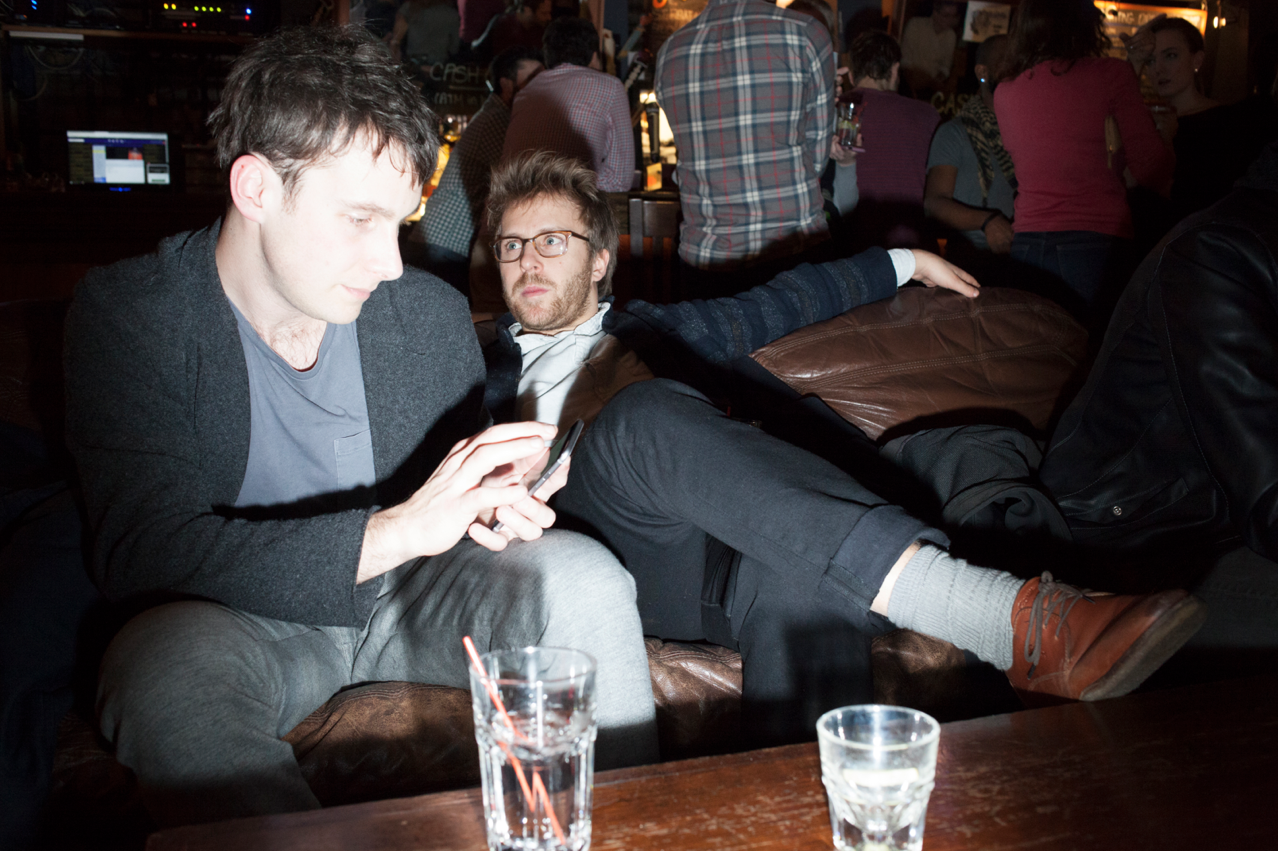
The $150 million Schwarzman Center, conceived partly as a weekend hangout space for students across the University, will include several features designed specifically to appeal to the thousands of students in Yale’s 13 graduate and professional schools: a late closing time, a bar serving beer and wine and an upstairs room reserved for graduate and professional students.
But those much hyped features of the lavish new student center could face competition from an older, more established student hub with deep roots in the graduate school community, according to graduate and professional students interviewed. Gryphon’s Pub at GPSCY, a historic, student-run bar that has served graduate students for nearly 50 years, currently offers some of the same services promised by the Schwarzman Center — but in an intimate and familiar setting that students are already envisioning as a hip alternative to the soon-to-be-renovated Commons.
“It sounds like Yale is trying to be cool,” said Jay Locke GRD ’17. “GPSCY is already cool.”
GPSCY, which stands for Graduate and Professional Student Center at Yale, has been a staple of graduate student social life at Yale since it opened in the 1970s. Students gather there to dance and play pool as they wind down after days of grueling work in the high-pressure academic cauldron of the graduate and professional schools. Through the decades, the pub has served as a workplace and hangout spot for a series of prominent Yale alumni. University President Peter Salovey helped construct one of the three bars in the pub while he was a student at the Graduate School of Arts and Sciences. And Supreme Court Justice Sonia Sotomayor LAW ’79 worked there as a bouncer and bartender during her time at the law school.
“It’s like if you took a nice, classy bar and mashed it with the grungiest, diviest bar imaginable,” said Robert Wickham GRD ’16, one of eight managers who run the pub. “It’s almost an ironic bar. We’re not trying to be hipster, but it’s pretty hipster down there.”
On Friday nights, according to Wickham, the pub sometimes attracts as many as 1,300 customers, who gather to play karaoke games with their friends or to perch on creaky chairs as they sip mugs of two-dollar beer.
GPSCY’s York Street building is owned by the University, which maintains the facilities and meets periodically with the Graduate and Professional Student Senate to discuss the finances of the pub. But GPSCY, which does not admit undergraduates, covers operational costs, including its payroll, without University assistance, charging graduate and professional school students a membership fee of $20 per year. The vast majority of GPSCY employees are either graduate students at Yale or the spouses of students.
However, the publication two weeks ago of a new advisory committee report outlining recommendations for the Schwarzman Center raised questions about the future of existing graduate student social spaces on campus. The nearly 100-page report, which does not mention GPSCY, calls for the Presidents’ Room on the second floor of Commons to be transformed into a designated hangout space for graduate and professional students. And it envisions a bistro-style dining area with a late-night pub serving alcoholic beverages to graduate students and undergraduates over the age of 21.
GPSCY Director Laura Smith and Graduate and Professional Student Senate President Elizabeth Mo GRD ’18 told the News that GPSCY and the planned Schwarzman Center facilities will complement each other rather than compete for student attention. According to Mo, who helped lobby the University for a new student hub, the Schwarzman Center will provide dining options and yoga classes, as well as numerous daytime events designed to foster interaction among graduate students and undergraduates.
“The offerings of GPSCY are very different from what the offerings of the Schwarzman Center will be, and I see each as complementing the other,” she said.
But despite those other offerings, several graduate and professional students interviewed expressed skepticism about the specific plans for a second late-night hangout space with a bar serving alcohol and a room closed to undergraduates.
Beth Price GRD ’21 said she would rather drink and relax at GPSCY because she prefers its endearing five-letter acronym to the corporate feel of the Schwarzman Center, named for The Blackstone Group founder Stephen Schwarzman ’69, who last spring donated $150 million toward the transformation of Commons into a student hub.
Jordan Graf DIV ’17 said he admires the “heritage” of GPSCY and believes that once the Schwarzman Center opens, students will embrace the pub as an anti-establishment rejection of the corporatized world of big-money donations.
“It would be good business for GPSCY,” Graf said.
Others said they simply did not get the sense that students want another graduate student bar on campus.
“I don’t think there’s a need for another bar,” said Marko Mitrovic GRD ’20. “It will just split the people up. We don’t need competition.”
But Smith maintained that GPSCY and the Schwarzman Center will occupy different niches at the University — although she acknowledged that the opening of the center may change the dynamic of graduate student social life on-campus.
“Undoubtedly there will be new challenges once the center is up and running,” Smith said. “But that will spur whatever student managers we then have on staff to continue to improve our facilities and programming.”
GPSS Vice President Cindy Rush GRD ‘16 said the Schwarzman Center will have no trouble attracting customers to its bar, because it will be the closest place to grab a drink for the large cohort of graduate students living on Prospect Street.
Still, Rush added, “Graduate students enjoy having a place of their own and GPSCY will continue to be that place for grad students.”







